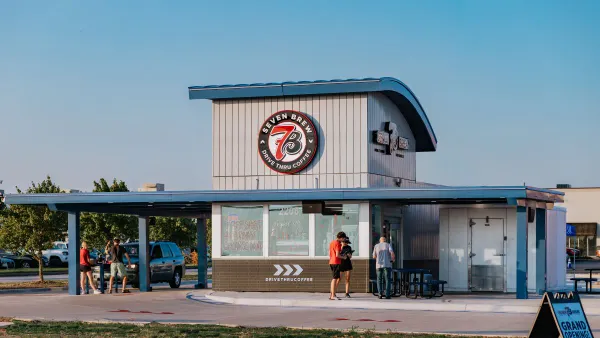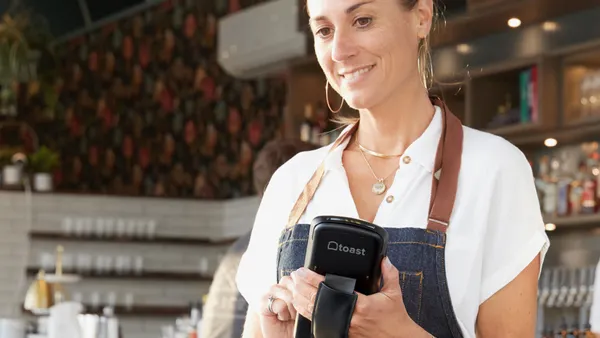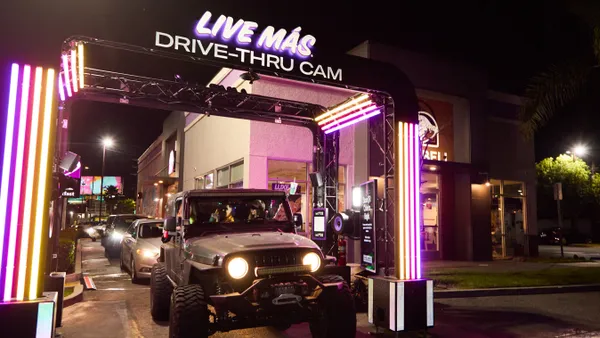Dive Brief:
- Luby’s Inc., which operates 84 Luby's restaurants, 60 Fuddrucker's and one Cheeseburger in Paradise, won shareholders' support to keep all nine of its board members after a proxy fight with activist investor Bandera Partners that launched in December, according to Restaurant Business.
- Bandera, which owns 9.8% of Luby's stock, has pushed for changes to reign in heavy debt and turn around declining revenue. The investor requested shareholders' approval to seat four board members.
- Following the election, Luby's CEO Christopher Pappas said the company will now focus on a turnaround plan to improve operating results and increase shareholder value.
Dive Insight:
Activist investors have been putting additional pressure on restaurant board rooms to improve shareholder value during a time of slumping same-store sales and declining traffic. The casual dining space has been particularly vulnerable to these investors. They are rarely successful, but there are a few examples to the contrary. In 2014, for example, shareholders won seats on the board for Bob Evans and replaced every board member at Darden. Pressure from activist investor Engaged Capital led to Del Frisco's considering a potential sale last year.
According to Nation's Restaurant News, these investors target restaurants because many of them are struggling but are still attractive business models. The industry has also been of interest to activist investors recently as the rise of e-commerce in retail has limited investor options. In the past few months alone, activist investors have targeted Starbucks and Papa John's.
Activist investors often don't lead to improved businesses, however, and the overall performance of the companies end up being neutral, Aaron Allen, founder and chief strategist of Aaron Allen & Associates, told Restaurant Dive. Many board rooms are implementing crisis communication plans in case an activist investor puts pressure on the company, he said, and sometimes the additional scrutiny can lead to a company going private. When companies are taken out of the public eye, they can recover privately without unnecessary attention, he added.
Luby's executives criticized Bandera's alternative strategy, stating that the plan it put forward could fit on a Fuddruckers napkin. The company also warned shareholders that Bandera would likely call for liquidation. Also, the board candidates that Bandera put forward had little restaurant experience, according to Luby's Dec. 24 letter to shareholders. These were the likely factors behind shareholders' vote in favor of the company.
That’s not to say Luby's is out of the woods, however. Bandera's move stems from a challenging five-year streak for the company in which it lost $73 million and its stock prices fell by 84%, according to the Houston Chronicle. Luby's also has liquidated $88 million in assets throughout the past decade.
While proxy fights are meant to get the company's attention and bring grievances to a broader audience, Luby's has been down this road before. In 2002, a Texas businessman ran for a seat on the company's board in an effort to put pressure on the company after its stock prices fell by double-digits. He was not voted in.
Luby's has the history and the diversification to forge a turnaround. The company started to reign in debt by closing a number of locations since May after issuing a warning in June that it was in default on some of its $44 million in debt.
Its fiscal year 2019 also will provide a clearer picture of whether or not this path is resonating. While Luby's has been on a path to recovery, it may take a quarter or two to take. Its same-store sales have not yet caught up, decreasing 5.5% during the first quarter ending Dec. 19, 2018. But its CEO doesn't seem to be too concerned about the declining numbers, especially since the company reduced food and operating costs at a higher percentage than the dip in sales.











